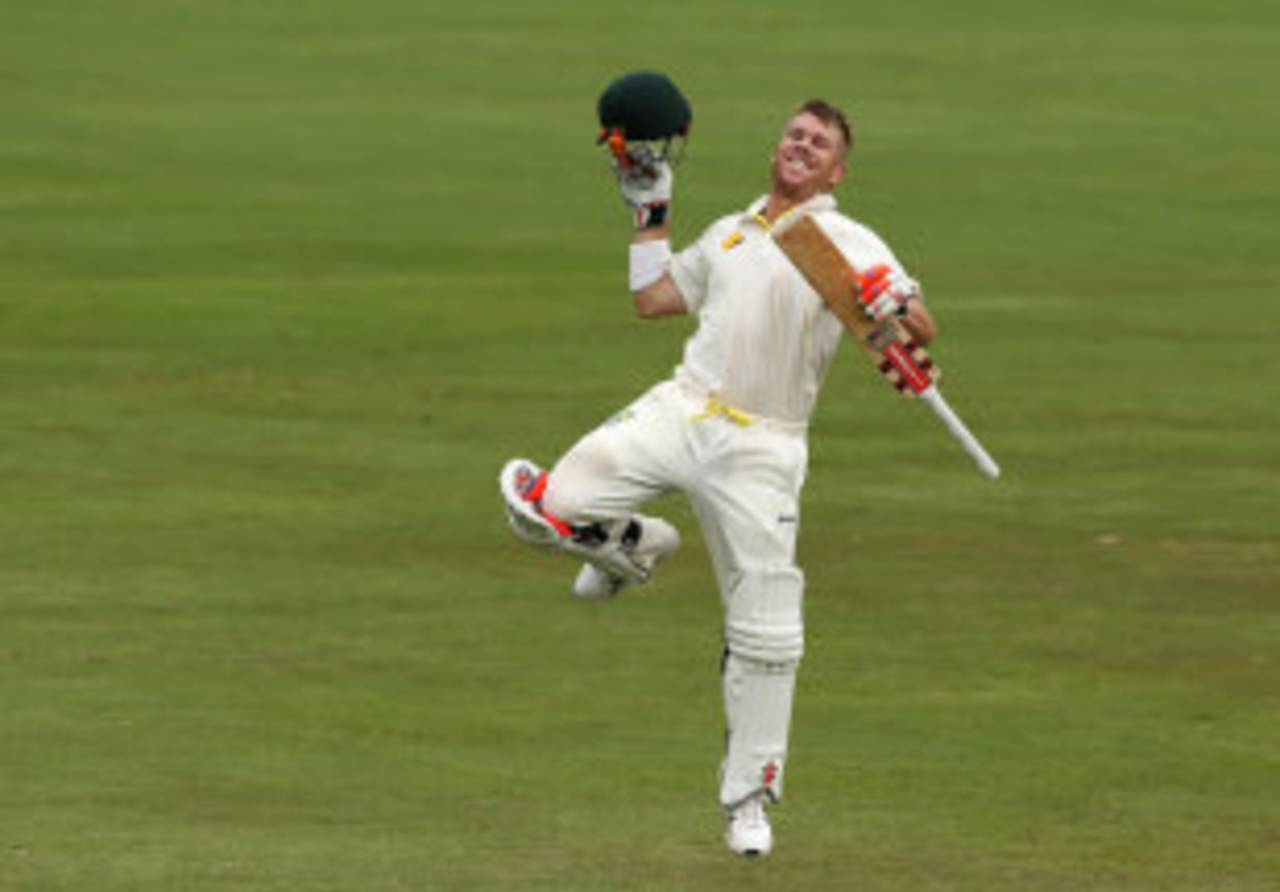Warner's second-innings heroics
Stats highlights from the third day in Centurion, where Mitchell Johnson and David Warner further drove home Australia's advantage

In the last year, David Warner averages 54.83 in the second innings, with three centuries, and 25.00 in the first innings, with no hundreds • Getty Images
- There have been only four totals of more than 200 in the fourth innings of Tests in Centurion, with the highest of those being 251 for 8 by England in 2000. However, that was an unusual Test match, in that both teams forfeited an innings each, so the fourth innings was actually the second innings of the Test. In a regular Test, the highest fourth-innings score here is 228 for 9 by England, again, as they held on to a draw in 2009. South Africa's highest is 226 for 4 against Sri Lanka in 1998, in a Test in which Hansie Cronje swept Muttiah Muralitharan to distraction, scoring 82 off 63 balls, after Murali had threatened to run through the side. Given the uneven bounce that's already on view here, South Africa's only hope of saving the Test seems to be the weather.
S Rajesh is stats editor of ESPNcricinfo. Follow him on Twitter